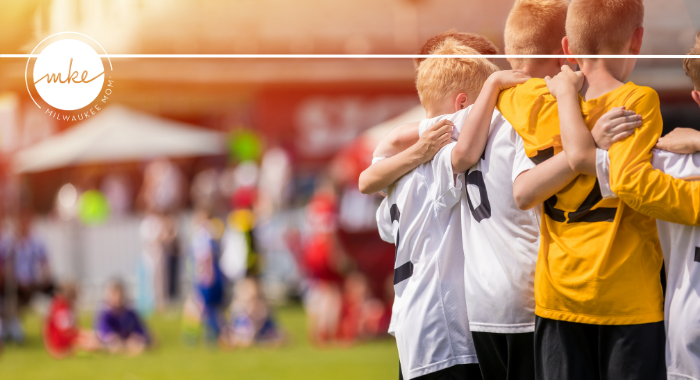 It’s hard to know when to prepare your child to be an athlete. Sports seem to sneak up on parents unexpectedly. Maybe you weren’t an athlete, or you weren’t aware that your child could play before they even started school. Perhaps you are an athlete and have just been counting the days. In any case, there are a few simple things you can do for a young athlete that will benefit them whether they end up going pro or simply like the life of a weekend warrior.
It’s hard to know when to prepare your child to be an athlete. Sports seem to sneak up on parents unexpectedly. Maybe you weren’t an athlete, or you weren’t aware that your child could play before they even started school. Perhaps you are an athlete and have just been counting the days. In any case, there are a few simple things you can do for a young athlete that will benefit them whether they end up going pro or simply like the life of a weekend warrior.
I’ve been coaching for decades, from grade school through college. I’ve been an athlete for even longer. I regularly attend continuing education conventions for coaches and have had the privilege of learning from college Division I through Olympic coaches. The one thing every level comes back to is that an athlete has to be having fun to stick with a sport or sports. The second thing that relates to young athletes staying or leaving a sport is unrealistic pressure, usually by others, and frustrations that stop the sport from being fun anymore.
So, as a grade school, middle school, high school, and now college coach and as an athlete that competed at the Division I level let me share some thoughts with you on preparing your young athlete to play for life.
First, play with your little athlete. And, by play, I do NOT mean coach.
I know it is tempting to correct form and give tips, but does that make it fun? No. How do I
know this? I am a horrible golfer who likes to golf. Being a woman who usually golfs with men, they often ruin my afternoon outing by calling out suggestions on form, clubs, and anything else they think might help. Do I enjoy this? No. I just want to enjoy my walk with my golf clubs.
Imagine how excited your child is when you put down your computer or phone or get home from work and decide to play with them outside. And then imagine how they feel when every touch, catch, throw, or shot is “not quite right.” Just play with them. And, start playing with them young. Here is a quick, off the top of my head, list of games you can play from a very young age:
- Patty-Cake: develops eye-hand coordination
- Peek-a-boo: develops reaction time and predictive abilities
- Rolling a ball back & forth on the floor: eye-hand, reaction time, aim
Games that involve chasing, skipping, hopping on one or two feet, or jumping such as hopscotch or duck, duck, goose are fantastic for developing stamina, agility, and other skills for a young athlete. Explore your local Y or rec center for opportunities to expose your athlete to multiple sports in an inexpensive and fun way.
Second, celebrate development or improvement over winning.
One of the hardest things I struggle with on my high school age teams is their inability to measure success by anything but the win-loss record. I am a coach who sets goals based upon a team or individual improvement over a win-loss record. Did an athlete master a skill that they didn’t have when they started the season? Did they improve in a stat area or increase their vertical jump?
As a coach, it is my job to give them the tools and encouragement to improve. Improvement and development lead to winning. Simply insisting on winning more does not.
Third, recognize that your passion may not be their passion.
This is a tough one for parents. I was a four-sport athlete in high school: volleyball, basketball, track, and softball. I was a two-sport athlete in college: volleyball and track. My first two daughters loved soccer and rugby, respectively. So, I began to play soccer and, honestly, still don’t really get rugby. But, I love to watch them play; I cheer and sometimes laugh at inappropriate times. Again, rugby. Because they loved the sports, they played through high school, college, and now as adults. One has gone on to coach in her sport.
Finally, have realistic expectations of your athlete.
If it is now time to introduce your young athlete to competitive sports, you need to talk to your child about their motivation for playing. George Washington University did a study in 2014 on why kids play sports. The top reasons had more to do with trying (1), coaching (2), playing, and team (3-5) than with winning (48).
Athletes develop at different ages. They grow at different rates. A child may grow into a sport later than their peers, but if we as coaches and parents have stopped the game from being fun, we will never see what could have been. I say this not as a coach but as a parent who watched ruefully as my girls mastered cartwheels and making daisy chains on the soccer field. The best thing you can do as a parent of a young athlete is to make sure their sports environment is safe, the appropriate developmental level, and stays fun.








